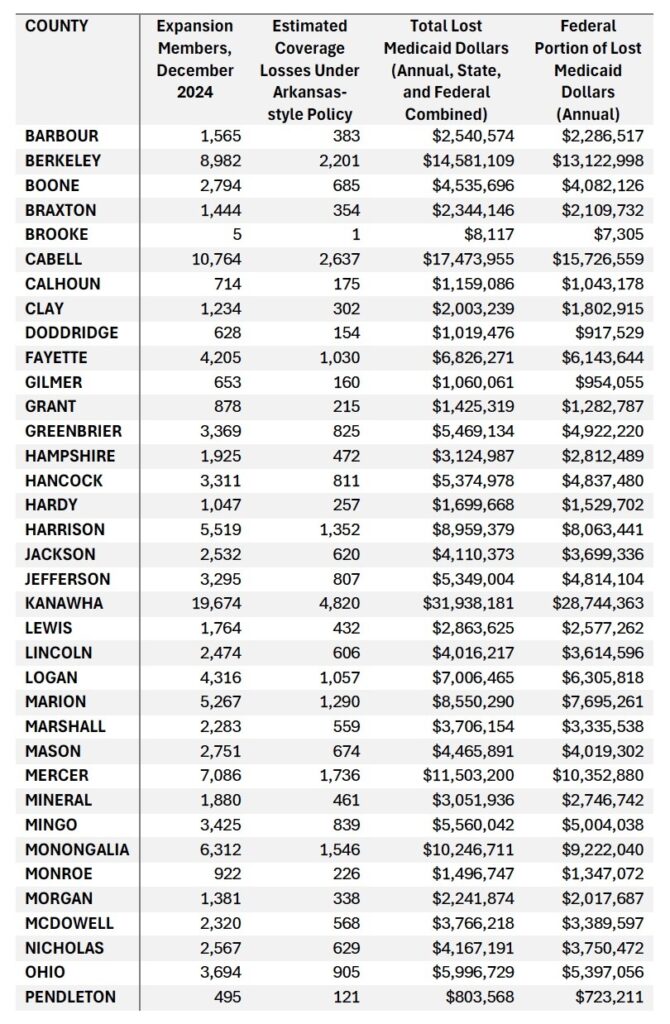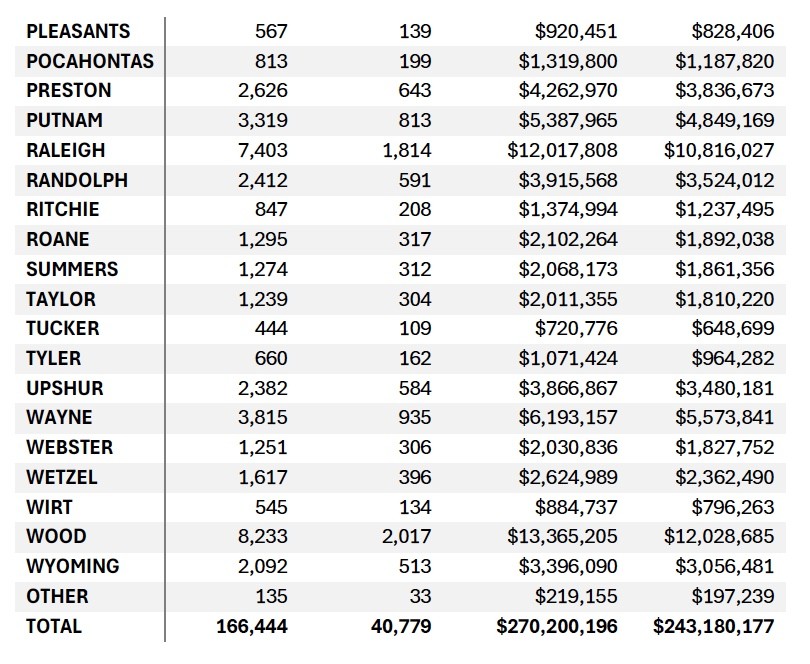Read the full fact sheet.
Federal policymakers are reportedly considering enacting work reporting requirements for Medicaid in the new Congress. Similar state-level policy led to disastrous consequences in Arkansas in 2018-19 until a federal judge blocked the program. Enacting an Arkansas-style work reporting requirement at the federal level would result in West Virginia’s health care system losing an estimated $270 million annually, 90 percent of which ($243 million) is federal Medicaid dollars, while uncompensated care costs would dramatically increase for providers and the state. Further, an estimated 40,779 residents could be expected to lose their health coverage. Nearly 4,500 job losses in the health care sector and indirectly related industries could be expected.
Nearly one in three West Virginians receive health coverage through Medicaid. The program serves many of our state’s families directly and is the largest source of coverage for births, child health care, substance use treatment, and long-term care for West Virginians, benefiting residents across the state. Medicaid is vital to our state’s hospitals and providers, with research showing that Medicaid expansion has resulted in reduced uncompensated care, increases in hospital operating margins, and decreases in closures of hospitals and obstetrics units. Medicaid improves hospital finances by extending coverage to patients who would otherwise be uninsured and require hospital charity or uncompensated care.
According to WorkForce West Virginia, health care is the sector expected to see the most job growth in the state over the coming decade, in large part driven by federal Medicaid investments. A 2018 report from the WVU Bureau for Business and Economic Research estimated that a $29 million reduction in federal Medicaid dollars would cause a loss of 520 jobs annually. Extrapolating from that study, a $243 million annual reduction in federal Medicaid funding could cost West Virginia nearly 4,500 jobs annually.

